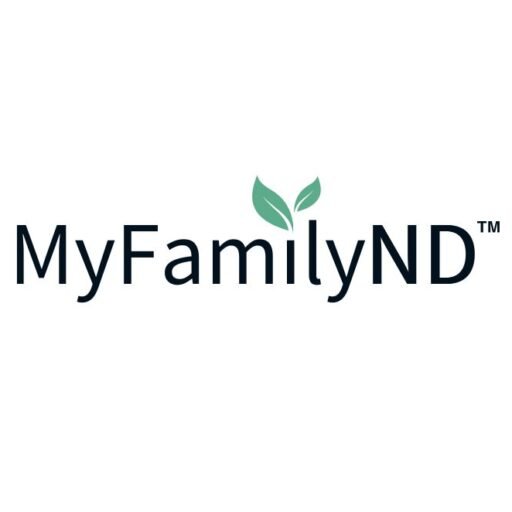
The Role of Probiotics in Kids’ Health: Supporting Gut Health Through Natural Foods and Supplements
Gut health is an essential component of overall well-being for children. The gut, often referred to as the “second brain,” plays a critical role in digestion, immunity, and even mental health. One of the most effective ways to support gut health is through probiotics—beneficial bacteria that promote balance and proper function within the digestive system. Probiotics for kids have gained significant attention in recent years due to their ability to support a healthy gut microbiome, which in turn helps boost immunity, digestion, and overall health.
In this article, we’ll explore the importance of gut health for children, how probiotics work to support this system, and provide natural food sources and supplements to promote a healthy microbiome for your little ones.
Understanding Gut Health in Children
The gut microbiome is home to trillions of bacteria, both beneficial and harmful. A healthy gut microbiome contains a balance of these bacteria, supporting proper digestion and protecting against harmful pathogens. For children, maintaining a healthy gut is particularly important because it plays a crucial role in their development, immune system function, and mental health.
The gut microbiome is influenced by many factors, including diet, antibiotics, stress, and genetics. A disrupted microbiome, known as dysbiosis, can lead to various health issues such as digestive disorders, allergies, autoimmune conditions, and even behavioral problems. This is why focusing on gut health for children is essential, and one of the most natural and effective ways to do this is through probiotics.
What Are Probiotics and How Do They Work?
Probiotics are live microorganisms, mainly bacteria and yeast, that are beneficial for your child’s gut health. These “good” bacteria help to maintain a healthy balance in the digestive system by outcompeting harmful bacteria. When the gut microbiome is in balance, digestion functions properly, and the immune system is supported.
Probiotics work in several ways:
- Improving Digestion: Probiotics aid in the breakdown of food, making it easier for the body to absorb essential nutrients. They help maintain the health of the intestinal lining, allowing for better nutrient absorption and reducing the chances of digestive disturbances like constipation, bloating, or diarrhea.
- Supporting the Immune System: Around 70% of the body’s immune system is located in the gut. Probiotics help modulate immune responses, enhancing the body’s ability to fight off infections and reducing inflammation. By promoting a healthy gut microbiome, probiotics help bolster your child’s immune defense.
- Fighting Harmful Bacteria and Pathogens: Probiotics prevent harmful bacteria and pathogens from thriving by creating an environment in the gut that favors beneficial microorganisms. This reduces the likelihood of infections and digestive illnesses.
- Improving Mental Health: Research has shown that the gut microbiome plays a role in mental health and behavior. Probiotics can influence the gut-brain axis, which is the communication network between the gut and brain. Some studies suggest that probiotics may help manage symptoms of anxiety and depression, and reduce hyperactivity in children with attention-deficit hyperactivity disorder (ADHD).
Benefits of Probiotics for Kids’ Health
Probiotics are not only vital for digestive health but also support overall well-being. Below are some key health benefits that probiotics offer for children:
1. Enhancing Digestive Health
A healthy gut microbiome is essential for proper digestion. Probiotics help break down food, absorb nutrients, and prevent digestive discomfort. Children often experience issues like bloating, gas, constipation, or diarrhea, especially during times of illness or after taking antibiotics. Probiotics help to restore balance in the gut and prevent or alleviate these digestive issues.
For example, probiotics have been shown to be particularly effective in treating diarrhea caused by antibiotics or infections. They can also help with conditions like irritable bowel syndrome (IBS) and colic in infants.
2. Boosting Immunity
The gut microbiome is home to the majority of immune cells. A healthy balance of gut bacteria is crucial for a well-functioning immune system. Probiotics help strengthen the immune system by promoting the production of antibodies and activating immune cells that protect the body from harmful bacteria, viruses, and pathogens.
Research has shown that probiotics can help reduce the frequency and severity of common illnesses like colds, ear infections, and respiratory infections in children. They also help prevent the overreaction of the immune system, reducing the risk of autoimmune diseases and allergies.
3. Supporting Mental Health
Emerging research has uncovered the connection between gut health and mental health, known as the gut-brain axis. The gut microbiome communicates with the brain through the nervous system, and imbalances in gut bacteria can affect mood, behavior, and cognitive function.
Probiotics have been found to have positive effects on children’s mental health. Studies suggest that probiotics may help alleviate symptoms of anxiety, depression, and stress in both children and adults. In children with ADHD, probiotics may help reduce hyperactivity and improve attention span.
4. Reducing the Risk of Allergies
Gut health plays an important role in the development of the immune system. Early exposure to beneficial bacteria, such as probiotics, can help reduce the risk of allergies and asthma in children. A disrupted gut microbiome, often caused by a lack of exposure to beneficial bacteria, can lead to immune system imbalances that increase the likelihood of allergic reactions.
Research suggests that children who take probiotics from an early age are less likely to develop common allergies, including food allergies, hay fever, and eczema.
5. Enhancing Skin Health
Probiotics are also beneficial for children’s skin health. Conditions like eczema, acne, and dermatitis are often linked to an imbalance in the gut microbiome. Probiotics can help improve skin health by reducing inflammation and promoting a healthy immune response.
In particular, the strain Lactobacillus rhamnosus has been shown to reduce the symptoms of eczema in children. By supporting the skin’s natural barrier function, probiotics help reduce the risk of skin flare-ups and irritation.
Natural Food Sources of Probiotics for Kids
One of the best ways to ensure your child gets enough probiotics is by incorporating probiotic-rich foods into their diet. Natural food sources of probiotics provide live bacteria that can help replenish the gut microbiome and support overall health.
Here are some excellent sources of probiotics for kids:
1. Yogurt
Yogurt is one of the most well-known and accessible sources of probiotics. It contains live cultures such as Lactobacillus and Bifidobacterium, which are beneficial for digestion and immune function. Opt for plain, unsweetened yogurt to avoid excess sugar, which can negatively impact gut health.
Greek yogurt is a great option because it’s higher in protein and lower in sugar compared to regular yogurt. It can also be used as a base for smoothies, parfaits, or as a topping for fruit.
2. Kefir
Kefir is a fermented dairy drink that contains a diverse range of beneficial bacteria. It is similar to yogurt but has a thinner consistency, making it easier to drink. Kefir is rich in probiotics like Lactobacillus kefiri and Saccharomyces kefir, which support gut health and immunity.
If your child is lactose intolerant, there are also non-dairy versions of kefir made from coconut, soy, or almond milk.
3. Sauerkraut
Sauerkraut is fermented cabbage that contains probiotics such as Lactobacillus bacteria. This tangy dish is a great way to introduce beneficial bacteria into your child’s diet. It’s important to choose raw, unpasteurized sauerkraut, as pasteurization destroys the beneficial bacteria.
Sauerkraut can be served as a side dish or added to sandwiches, tacos, and salads.
4. Kimchi
Kimchi is a traditional Korean dish made from fermented vegetables, usually cabbage or radishes, and seasoned with chili pepper, garlic, and other spices. Like sauerkraut, kimchi is a rich source of probiotics and can provide a unique, flavorful way to introduce probiotics to your child’s diet.
5. Miso
Miso is a fermented paste made from soybeans, barley, or rice. It is often used in soups, sauces, or dressings. Miso is an excellent source of probiotics, particularly Lactobacillus and Bifidobacterium strains.
6. Pickles
Fermented pickles are a good source of probiotics, but only those that are naturally fermented in brine (water and salt), as opposed to those made with vinegar. Look for pickles labeled “live culture” to ensure they contain beneficial bacteria.
7. Tempeh
Tempeh is a fermented soybean product that can be used as a meat substitute. It contains a variety of beneficial bacteria and is a good source of protein, making it a nutritious addition to your child’s diet.
Probiotic Supplements for Kids
While natural food sources are an excellent way to introduce probiotics into your child’s diet, probiotic supplements can also be helpful, especially for children who have dietary restrictions, are picky eaters, or need a higher concentration of probiotics. Probiotic supplements come in many forms, including capsules, chewables, powders, and liquids.
When choosing a probiotic supplement for your child, look for products that contain a variety of strains of beneficial bacteria, such as Lactobacillus, Bifidobacterium, and Saccharomyces boulardii. It’s also important to choose a product that’s specifically designed for children, as the dosage and strains may differ from those intended for adults.
Conclusion
Supporting your child’s gut health through probiotics is an essential step in promoting their overall well-being. Probiotics play a crucial role in digestion, immune function, and even mental health. By incorporating probiotic-rich foods such as yogurt, kefir, and sauerkraut into their diet, you can ensure your child receives the necessary bacteria to support a healthy gut microbiome.
In cases where diet alone is insufficient, probiotic supplements can offer an additional boost to your child’s health. Whether through natural foods or supplements, probiotics provide an effective and natural way to promote your child’s health and well-being from the inside out.



